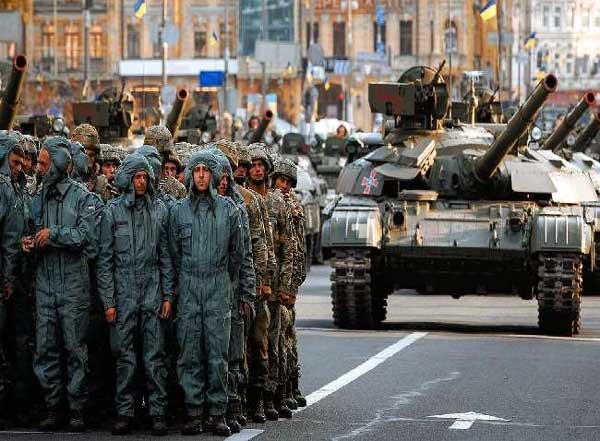The unalloyed truth about the Ukraine-Russia conflict is that it is a war that Russia cannot lose and Ukraine cannot win.
As long as this prevails the world is safe. But should Russia come close to losing the war, the use of tactical nuclear weapons is a certainty. This will be a global catastrophe as it will set a precedent that will see nuclear use in the Middle East, by Iran or Israel, and in the Indian subcontinent by Pakistan and India as well as in Korean Peninsula by North Korea.
In the 1980s as the Berlin Wall fell and Eastern and Central Europe decoupled from Russia, the Soviet Empire ended. The process continued in the 1990s when the Central Asian Republics gained independence resulting in the dismantling of the Russian Empire built by the Czars. The Ukraine war that is going on for one yearthreatens the dissolution of the Russian Federation. The next dominos to fall are likely to be the Eastern Buriat Republic and Russia’s Far Eastern province of Siberia.
The net gainer in this geo-political upheaval is China. With the vast agricultural and mineral resources of Siberia added to its huge manpower, China will become the world’s numero uno power much earlier than expected. It seems the myopic West seems to be blind to this possibility as its elites (and masses) are still stuck in the Cold War mindset. Popular American television serials routinely depict Russians as villains. Implications for Indian security of such a dominant China are indeed grave as China under Xi Jinping has spurned Indian advances of building a multipolar Asian future.
The presence of even limited Russian forces in Central Asian Republics was a stabilizing factor in that volatile region. With Russia weakened due to Ukraine War, the most likely candidate to fill that power vacuum is again China! Neither Turkey nor Iran have the kind of economic resources or manpower to do it. But there is a real possibility of extremist Islamic forces becoming ascendant there. The potential for the rise of several Osma Bin Laden cannot be discounted.
Ukraine conflict resembles the tragedy of WWI when the war happened when no one really wanted it. To begin with, the West cast the first stone by engineering an anti-Russian regime in Ukraine. The issue got further aggravated when Putin, not satisfied with reclaiming Crimea, thought he could do a regime change in Kyiev. Nothing can explain the Russian armoured thrust to the Ukrainian capital in the initial stage of the war. Putin’s Russia violated the first principle of war, namely the selection and maintenance of aim. The aim selected, regime change, was unrealistic in that it undervalued Ukrainian nationalism and overvalued Russian strength. When Indian PM Modi stated that this is not the age of war, he was alluding to this Russian miscalculation. Putin was possibly dreaming of Ukrainian collapse at the sight of Russian tanks in Kyiev suburbs as had happened during the Second World War. That the entire West will come to the aid of Ukraine was given. Unlike in the case of Georgia, where lack of land access stopped the West from supporting Georgia, Ukraine has land borders with NATO members. It has now become a conflict between Russian arms pitted against the resources of the entire West.
Putin’s miscalculation has resulted in precisely the very outcome that he sought to prevent; namely, Ukraine joining NATO. Today one year after the Russian invasion of Ukraine, that country has virtually become part of NATO.
The Russo-Ukraine war has begun to resemble the Iran-Iraq war that went on from 1980 to 1988. A war that caused at least 500,000 deaths and impoverished both countries. In the eight-year-long conflict, the West supported Iraq while the Soviet Union supported Iran. In the end, it was a stalemate. With prospects of China upping the ante and coming to the aid of Russians with the export of weapons, there seems no end in sight. The two situations are however not entirely similar. In the current war, manpower is at a premium with both countries struggling to put boots on the ground.
One possible solution is if both countries accept the status quo, Ukraine accepts the annexation of Crimea and its Eastern Province by Russia, and Russia leaves the rest of Ukraine free to join NATO and the West.
Peace seems unlikely since both sides are sticking to the maximalist positions. One possibility is if regime change is to take place in Russia and Putin is replaced by a pro-West leader. On current reckoning, the dice seem to loaded against Russia as it struggles with manpower and equipment shortages.
With the weakening of Russia, the whole region of Central Asia seems destined for major geo-political changes and a repeat of the ‘Great Game’ of the 19th century is entirely possible. In this Great Game 2.0, West and China have replaced the old players Russia and Britain. India has to be wary of the trouble spilling over into the Indian Subcontinent.





